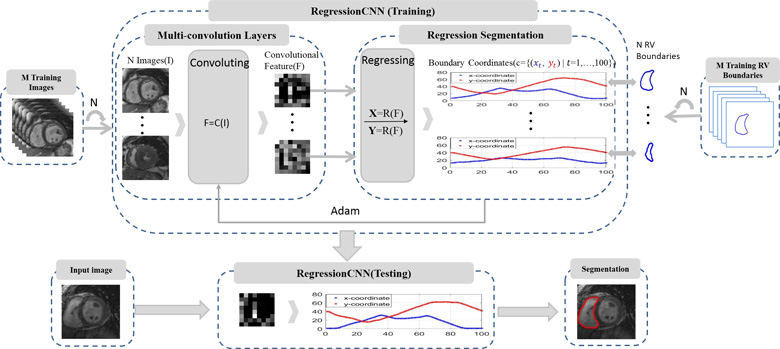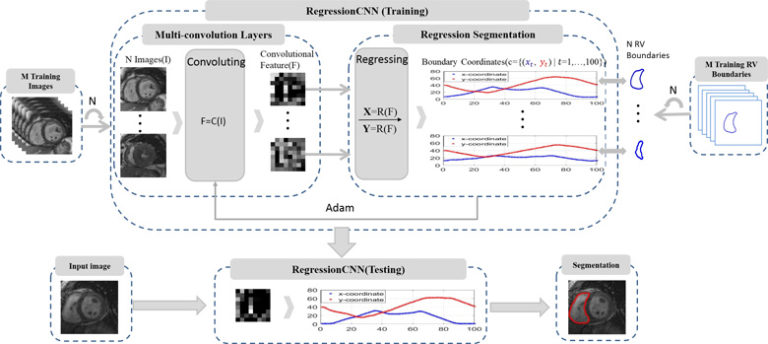Abstract:

Accurate segmentation of right ventricle (RV) from cardiac magnetic resonance (MR) images can help doctor to robustly quantify the clinical indices including ejection fraction. In this paper, we develop one regression convolutional neural network (RegressionCNN) that a holistic regression model is incorporated with convolutional neural network (CNN) to determine boundary points’ coordinates of RV directly and simultaneously. In our approach, we take the fully-connected layers of CNN as the holistic regression model to perform RV segmentation. And the feature maps extracted by convolutional layers of CNN are converted into one-dimension vector to connect holistic regression model. Such connection allows us to make full use of the optimization algorithm to constantly optimize the convolutional layers to directly learn the holistic regression model in the training process rather than separate feature extraction and regression model learning. Therefore, RegressionCNN can achieve optimally convolutional feature learning for accurately catching the regression features that are more correlated to RV regression segmentation task in training process. And this can reduce the latent mismatch influence between the feature extraction and following regression model learning. We evaluate the performance of RegressionCNN on cardiac MR images acquired of 145 human subjects from two clinical centers. The results have showed that RegressionCNN’s results are highly correlated (average boundary correlation coefficient equals 0.9827), and consistent with the manual delineation (average dice metric equals 0.8351). Hence, RegressionCNN could be an effective way to segment RV from cardiac MR images accurately and automatically.

